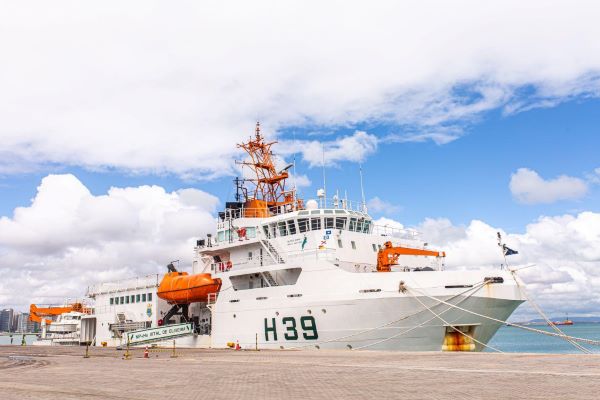The objective is to produce and deepen knowledge about the maritime portion of the region, considered the new oil and gas frontier

The “Vital de Oliveira” ship is a modern maritime research platform, built to identify and record, in detail, the natural resources existing in Brazilian waters.
Researchers from Petrobras, the Geological Survey of Brazil (SGB) and 10 universities from states that make up the geographic region of the Equatorial Margin, as well as two research institutions from the Southeast, embarked, on March 30, for a scientific expedition, on the Vessel of Hydroceanographic Survey (NPqHo) Vital de Oliveira, operated by the Brazilian Navy.
For thirty days, scientists with different lines of research will be on board the vessel, mainly focused on in-depth studies on the region's marine geology. The Equatorial Margin extends from Rio Grande do Norte to Amapá and is considered the new and most promising exploratory frontier in deep waters.
“This is the second expedition we have carried out in the area. Now we will intensify studies and update data. In the future, we will apply technologies that were used in the Santos Basin, such as artificial intelligence, drones and remote sensing to produce knowledge of this environment and share this opportunity with academia and other institutions, especially with local research groups”, says the company president, Jean Paul Prates.
This year's expedition was expanded: from eight to 28 scientists and from two to 12 universities.
“Much of the knowledge we have today about the marine ecosystems of the Campos and Santos basins was made possible by Petrobras. We want to do the same on the Equatorial Margin, generating scientific information relevant to our projects and academic research, thus contributing to national Science”, explains Carlos Travassos, director of Engineering, Technology and Innovation at Petrobras.
The studies will be carried out by collecting material between 130 and 800 meters deep, around 150 kilometers from the coast, in the maritime portion of Amapá. “This is one of the advantages of associated research, since few institutions have the appropriate means to carry out expeditions like this”, highlights Travassos.
Subscribe to our newsletter & stay updated.